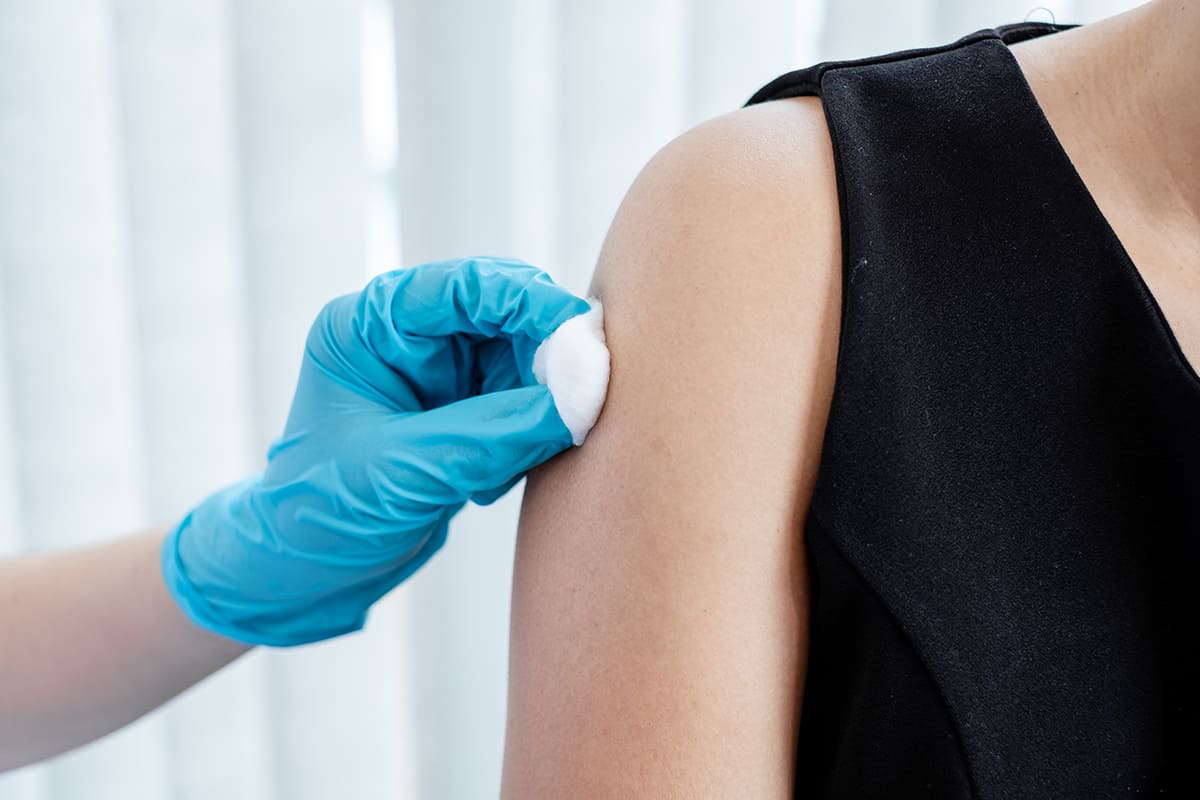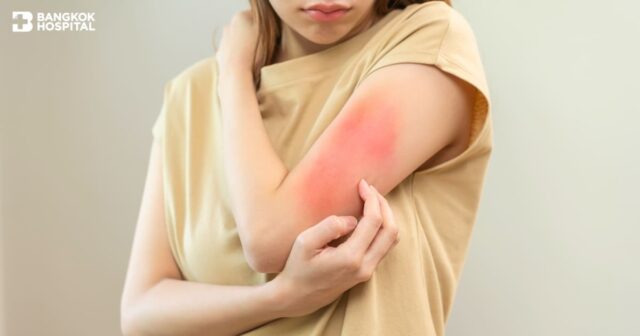For those who want to score some wins over their allergies, immunotherapy is the answer to their cure. Although it may take some time and continuous treatment, it will help stimulate a person’s immune system, reduce severity of allergic reaction, reduce medication and improve quality of life.
What Is Immunotherapy?
It is an alternative treatment for allergy which helps from reducing the symptoms to a cure. It involves injecting an allergen a little bit at a time, starting from smaller doses up to the maximum dose according to international medical practice. An injection is given once a week from small to the highest recommended doses during the first 6 months. The duration of the treatment will depend on each patient’s response and side effects. After that, doctor may consider once a month injection for another 3 to 5 years. According to a medical report, the patient’s condition will improve after 20 weeks of injection. At this time, the patient’s immunity will better tolerate allergens. Long-term immunity will begin to kick in and symptoms will get better. Thus, the patient can reduce their allergy medication or finally beat their allergies.
Who is a Candidate for Immunotherapy?
- Patients who have chronic allergic rhinitis
- Patients who have allergic asthma
- Patients who have skin allergy
Patients will get Skin Prick Test to Aeroallergen or blood test for specific IgE antibodies to find out if their allergies can be treated. Allergens include dust mites, grass pollen, cat or dog fur, cockroach, or mold.
Types for Immunotherapy
There are 2 types of allergen immunotherapy:
- Subcutaneous Immunotherapy: there are many types of this treatment according patient’s allergic reaction such as dust mite, grass pollen, cat or dog fur, cockroach, mold, etc. Patients should be treated under doctor’s care as they may have allergic reaction to the therapy. At the beginning, patients will need weekly injection which will be observed closely by a team of specialists at Allergy and Asthma Center.
- Sublingual Immunotherapy: currently, the only form of this treatment in Thailand is for allergy to dust mites. Patients will have less allergic reaction than the injection. The patient needs to place a medicine underneath their tongue daily for 3 to 5 years.

Preparation for Allergen Immunotherapy
- Each patient has different symptoms and conditions. Thus, they need to follow doctor’s advice strictly.
- Only administer the injection with a specialist and wait at the clinic for at least 30 minutes for observation.
- Refrain from exercise 2 hours before and after the injection to prevent allergens from being absorbed too quickly.
- Get enough sleep for 6-8 hours.
- If you plan to have a baby or if you are pregnant, you must inform the doctor.
- Sick patients cannot have the treatment.
- Patients do not need to stop taking antihistamine medication.
- Patients with underlying medical conditions must consult a medical specialist before receiving treatment.
Care After Injection
Patients need to stay for a 30-minute observation after injection. Patients must inform the doctor immediately if they experience swelling, redness, itchiness, rash, swollen lips, swollen eyes, difficulty breathing. Doctor will provide immediate care and observe closely.
Immunotherapy must be diagnosed and administered by a specialist only. It is important that the patients attend all their follow-ups to have effective outcome. Unfortunately, immunotherapy cannot prevent food allergy or chronic urticaria.
Other Treatments for Allergic Rhinitis and Asthma
- Avoid Allergen is the best treatment for allergy. Once the allergen has been identified, patients will know how to protect themselves correctly. Avoid pollution and PM 2.5 dust to reduce recurrence and allergic reaction to new allergens.
- Continuous Use of Inhaler
- Nasal Allergies or Sinusitis, if the nasal cavities become swollen or inflamed, steroidal nasal sprays are recommended for a short period of time to reduce the inflammation, swelling, congestion and nasal pain. Prolonged usage of steroidal nasal spray is not recommended because it will cause blood vessel constriction leading to rhinitis medicamentosa, a condition where nasal sprays will not help alleviate the congestion.
- Asthma requires continuous of controller nasal sprays to prevent decreasing lung capacity, reduce asthma attacks, and acute heart failure. These controllers tend to be steroids and bronchodilators. If there is an acute asthma attack, a reliever or fast-acting nasal spray can be used. If the condition does not improve, the patient should go to the hospital.
- Nasal Wash with warm saline solution to clear out all the dirt in nasal cavity.
- Monoclonal Antibody is produced from white blood cells that is specifically designed to act against the asthma-causing allergens. These can be targeted therapy, such as anti-IgE, Anti-IL-5, Anti-IL4/13, and Jak-1 inhibitor.
- Concomitant treatment, such as non-drowsy antihistamines, eye drops to relief allergic conjunctivitis, or eye itchiness.











